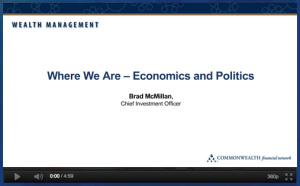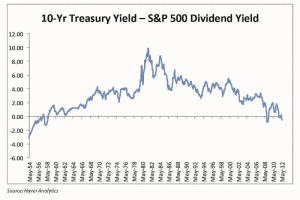I went looking for the actual sausage factory quotation from Otto von Bismarck, but apparently he was not the person who originally said it, and even the misattributed versions don’t say exactly what I want to say. So let’s take a big step down from Otto to the Urban Dictionary for a definition of a sausage factory.
“An unpleasant process, especially one that is hidden from public view, that is used to produce a widely consumed product: lots of people like sausage, but few would enjoy watching leftover animal parts ground up to make it.”
This is the theme of the news today. The ultimate goal, of course, is fiscal stability and economic recovery, but getting there is proving to be tough. Government is getting hit in many ways. From the Wall Street Journal (WSJ), we have “Post Office Might Miss Retirees’ Payment” on page A2 and “House Votes to Require Detailing of Budget Cuts,” while the New York Times (NYT) has “Years of Unraveling, Then Bankruptcy for a City” on the front page, as well as “South Carolina Governor’s Budget Ax is Blunted by Legislature,” “Detroit Mayor Confirms Cuts to Workers’ Pay and Benefits,” and “Maine Debate Hints at Rift on Medicaid After Ruling.” These headlines concern all levels of government—federal, state, and municipal—and both major parties, as well as both spending increases and spending cuts. The one theme is that limitations on available resources are now hitting.
Businesses are facing the same types of constraints. Some are facing them more or less voluntarily, as in “Big Banks Prepare Another Round of Cuts” from C1 in the NYT, and some involuntarily, as in “Four Banks Targeted in Euribor Probe” from page 1 of the Financial Times (FT) and “In Its First Action, Consumer Bureau Takes Aim at Capital One” from page B1 of the WSJ. Some are starting to fight against particular problems—see “Utilities Fear Approach of Fiscal Cliff” from page 5 of the FT, which describes how utilities and other dividend-paying companies are planning to fight the pending increase in dividend taxes from 15 percent to more than 43 percent.
Finally, individuals are facing the same problems, both at high levels, as in “Economic Fears Hurting Obama, Poll Indicates” from the front page of the NYT,and at middle class levels, as in “Uncomfortable Accounting: Retirees Wrestle with a Pension Buyout from GM.”
In the absence of breaking news, the consistent story here is that choices are being made across the board about how to raise more and spend less, and it isn’t pretty. But the factory has to keep rolling, so expect to see a lot more of this going forward.






